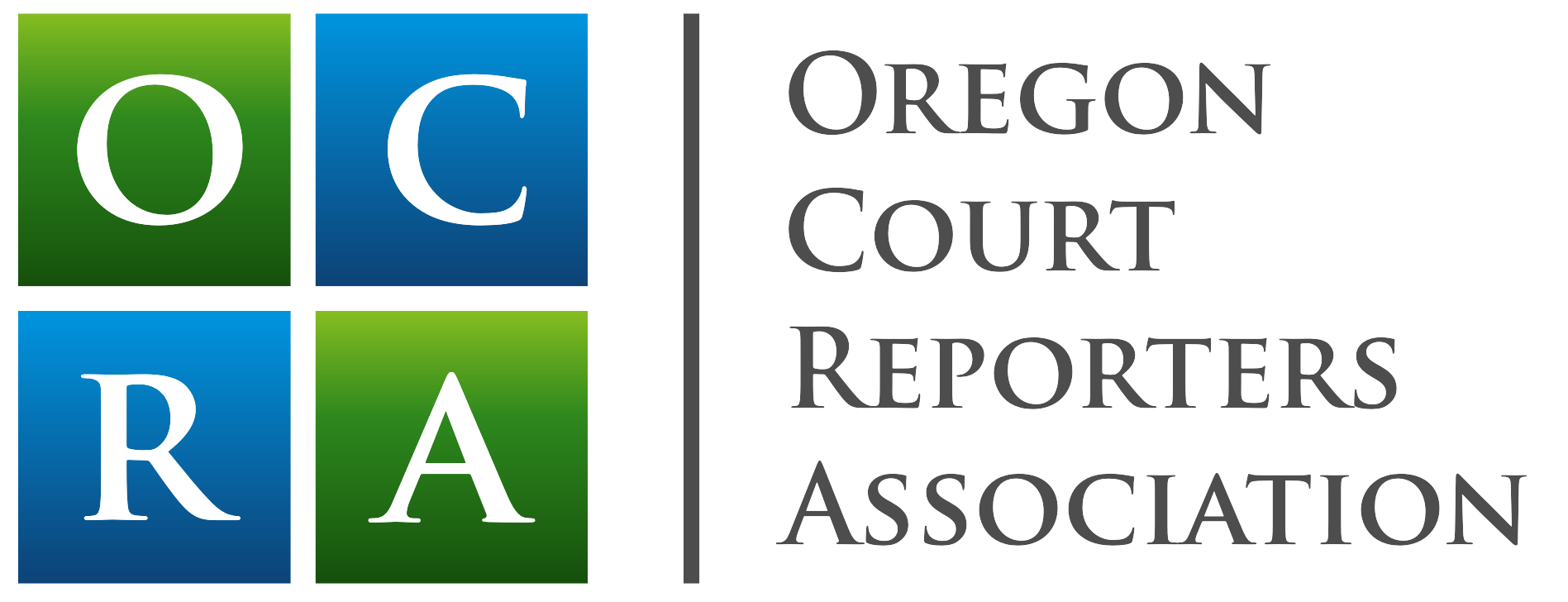OREGON STATE BAR/OREGON SHORTHAND REPORTERS ASSOCIATION
JOINT PROFESSIONAL STATEMENT OF PRINCIPLES
Governing Certain Lawyer/Shorthand Reporter Relationships
1. Except as required by law, these Principles apply to official shorthand reporters and freelance reporters.
2. Each organization shall appoint three or more members from its profession who shall serve on a committee, one to serve for a term of one year, another for a term of two years, and a third for a term of three years, and thereafter members shall be appointed for a term of not less than three years; and those individuals shall constitute the Joint Lawyer/Shorthand Reporter Committee. Such committee shall:
a. Promulgate such procedures as may be necessary to carry into effect the principles hereby adopted.
b. Jointly attempt to mediate and arbitrate, in the first instance, any disputes arising
between individual shorthand reporters and attorneys or between the two professions.
c. Report annually to each of said organizations the work of the committee during the year and make
such recommendations to said organizations as the committee deems desirable.
3. The shorthand reporters shall preserve the confidentiality of information entrusted to their possession which is so classified and shall take whatever steps are necessary to ensure its security and privacy.
4. The shorthand reporters shall preserve and file their shorthand notes in a manner so that they may be retrieved if needed; and these notes shall be retained for a period of not less than three years, if they have been transcribed, and not less than ten years if they are untranscribed, or as required by statute.
5. The shorthand reporters shall contribute to the integrity and impartiality of the judicial process or of any other proceeding by conducting themselves in a manner that is fair and courteous to all participants.
6. The shorthand reporters shall strive to accept only those assignments where they know their knowledge and skill are adequate, and advise the lawyers present where they believe their knowledge, skill and competency to be inadequate.
7. The shorthand reporter shall prepare an accurate transcript within a reasonable time upon request.
8. The shorthand reporter shall charge a reasonable fee where no statutory charge applies.
9. The shorthand reporter who refers a matter to another reporter shall, whenever possible, notify the attorney in advance.
10. The attorney employing a shorthand reporter or ordering a transcript from a shorthand reporter shall be personally responsible for payment of the fees charged by the reporters within a reasonable period of time.
11. When ordering a transcript from a shorthand reporter, no attorney shall direct that the reporter not disclose to the opposing attorney in the case that the transcript is being ordered.
12. When a transcript is ordered, the shorthand reporter is not obligated to contact the opposing attorney on the case and advise that a transcript has been ordered. If asked, however, by the opposing attorney, the reporter shall advise whether a transcript has been ordered.
13. The participants at a deposition should obtain their transcripts from the shorthand reporter.
14. If a transcript of a deposition is ordered by a person not a party or representative of a party in a case, the shorthand reporter shall notify the representatives of all parties in the case before preparing the transcript. If any party objects, the shorthand report should not provide the transcript to such requesting person without order of the Court.
15. When a shorthand reporter is employed by an attorney to report a statement of a witness, other than a deposition, the transcript should not be released without the attorney’s consent or a court order.
